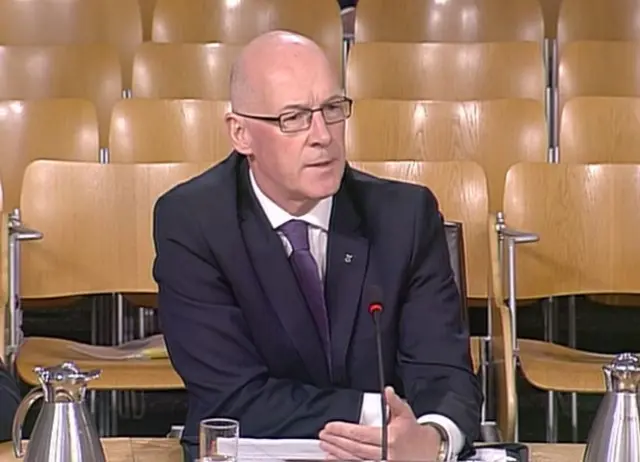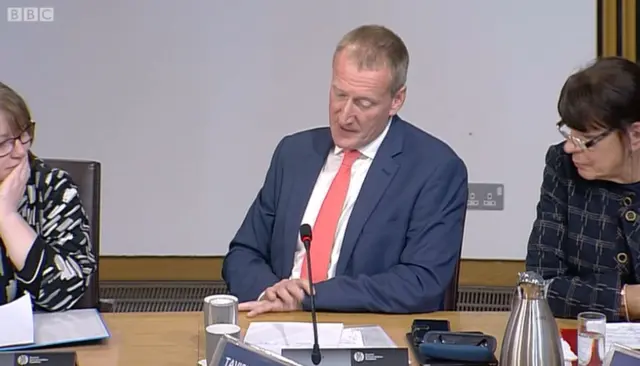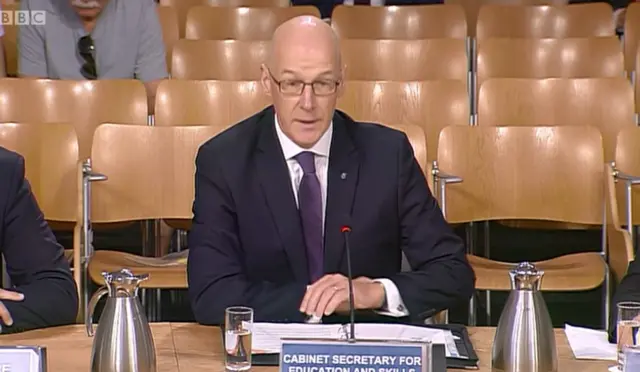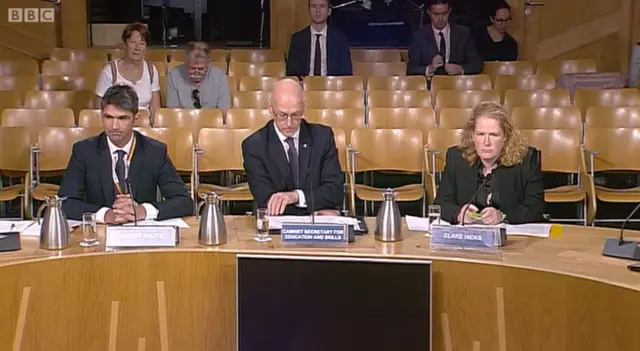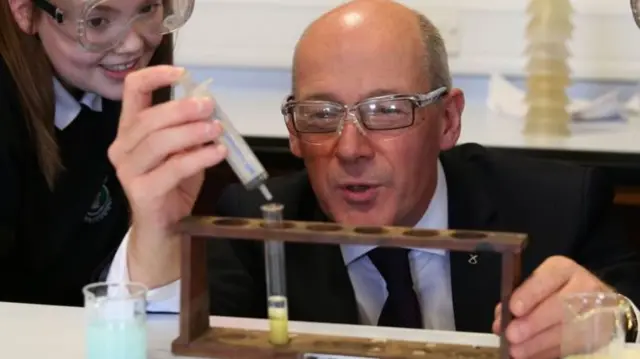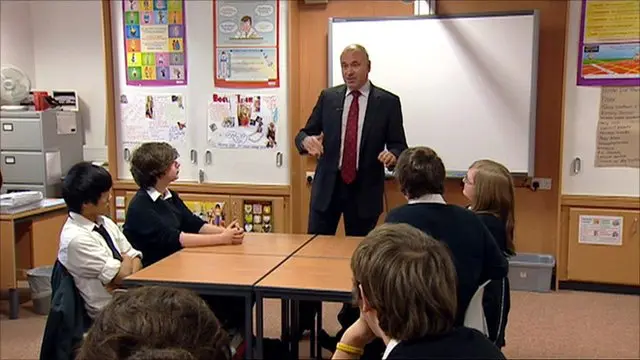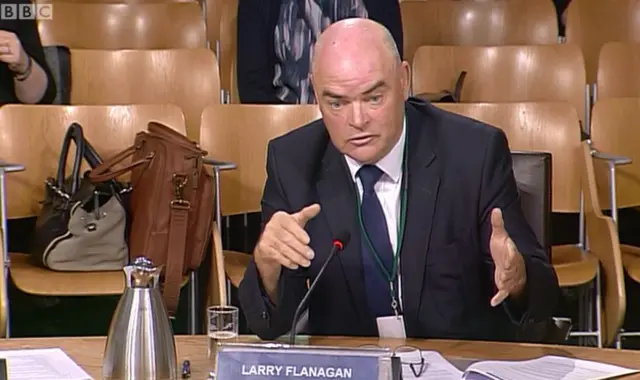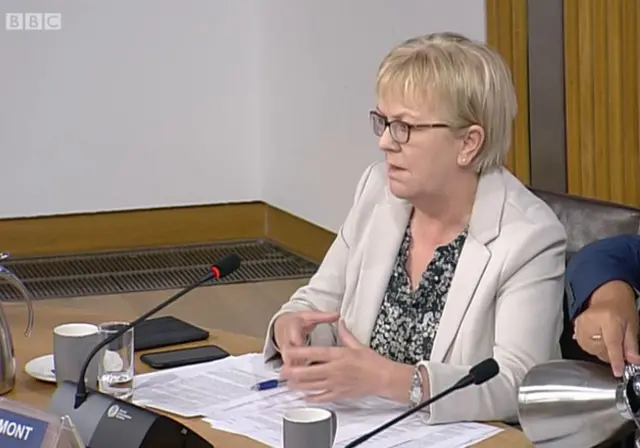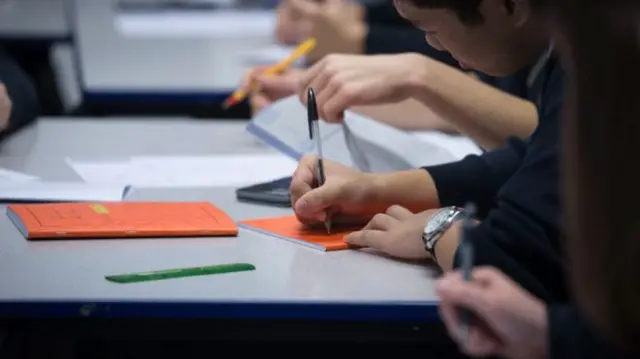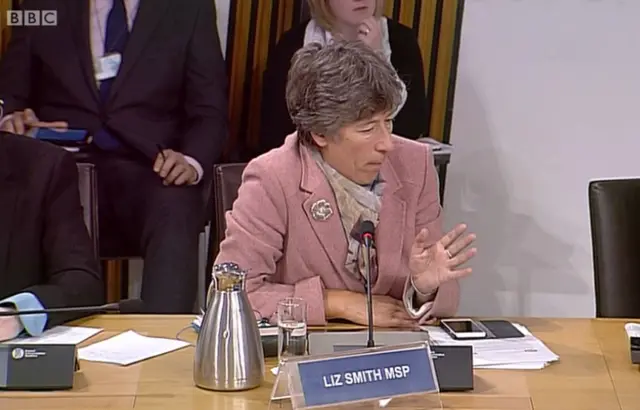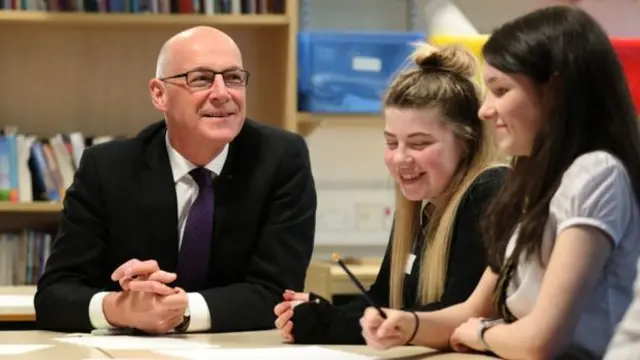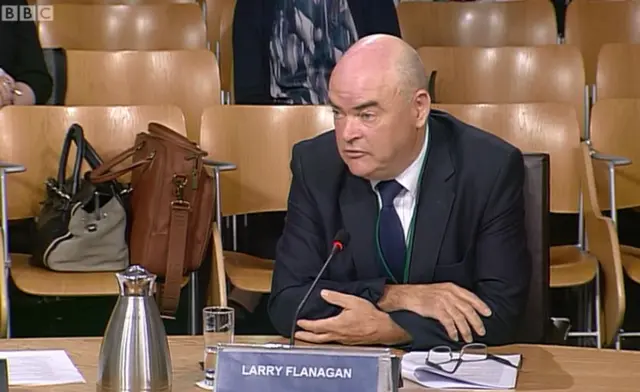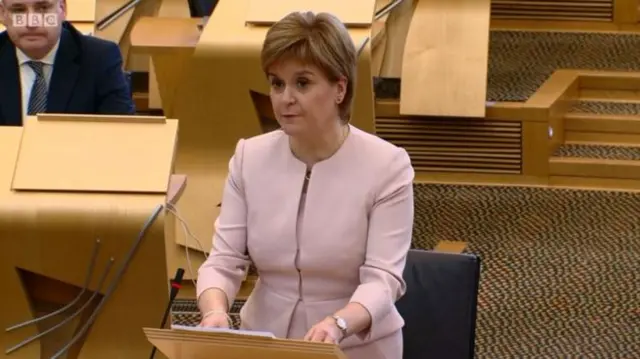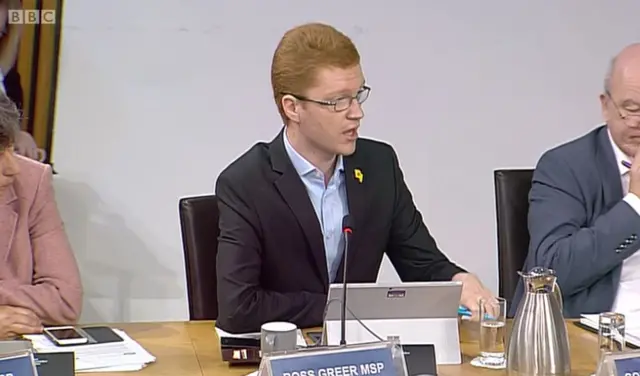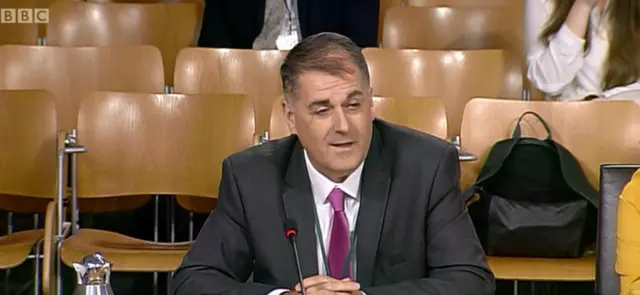Pupils and schools are being judged says Green MSPpublished at 11:23 BST 5 September 2018
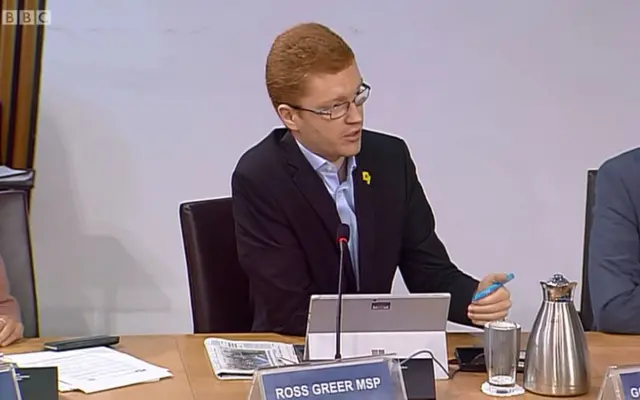 Image source, bbc
Image source, bbcGreen MSP Ross Greer
Mr Swinney insists that bringing back legislation remains an option if sufficient progress is not made.
It's now the turn of Green MSP Ross Greer to quiz the deputy first minister and he asks if Mr Swinney agrees that pupils and teachers are being judged, but they don't know what they are being judged on.
The education secretary disagrees with the way Mr Greer has put this and insists it is the agreement that will be judged not schools.
